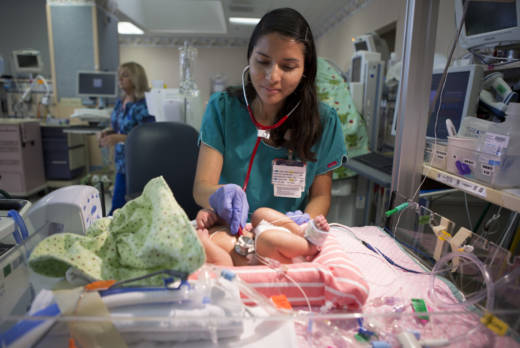California voters on Tuesday approved Proposition 4, which authorizes the state to sell $1.5 billion in bonds for children's hospitals to be used mainly on infrastructure projects. As of 8 am on Wednesday, the measure had 60 percent support.
More than two-thirds of the bond money will go to eight nonprofit children’s hospitals. Smaller amounts will go to University of California children’s hospitals and hospitals not specifically designated for children, but with a children's program or a children's wing.
"These funds will allow our hospitals to upgrade their facilities to meet new seismic safety requirements, update technology and expand capacity so that we can continue to provide the best care and save more lives," said Ann-Louise Kuhns, president and CEO of the California Children's Hospital Association, the organization that sponsored the proposition.
Children’s hospitals rely heavily on reimbursements from Medi-Cal, the insurance program for low-income adults and children, pregnant women and people with disabilities. Medi-Cal typically pays less for treatments than both Medicare and private insurance. That doesn’t leave much left over for capital projects, like required seismic improvements taking effect in 2030, Kuhns said.
An analysis from the nonpartisan Legislative Analyst's Office shows that California taxpayers would be on the hook for a total of $2.9 billion (including the borrowed sum plus interest) to pay back the bond over 35 years. Payments are estimated to cost Californians $80 million annually.
